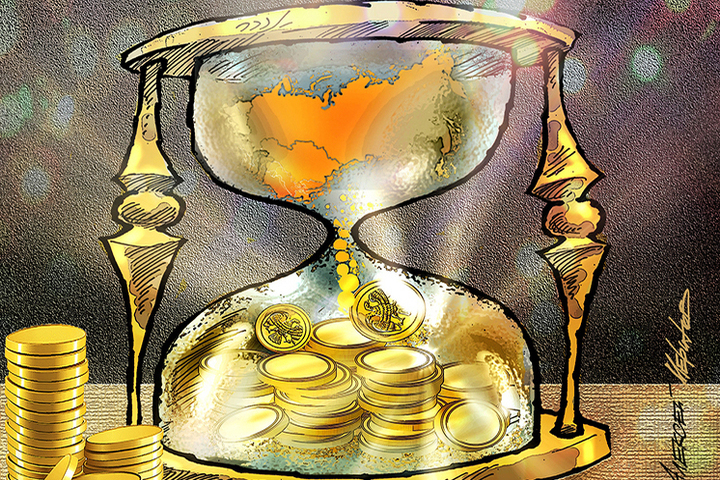Taxes for the middle class may increase: the progressive scale is fraught with surprises
[ad_1]

Which Russians will be affected by the new initiative and how much will the state treasury get from it, experts said
This year, the government, in accordance with the instructions of President Putin, is going to modernize the progressive taxation scale. Already from 2025, an increased personal income tax rate of 15% can begin to be applied, starting with an annual income of 1 million rubles, that is, for all Russians receiving a salary of 83.3 thousand rubles per month. According to Anatoly Aksakov, head of the State Duma Committee on the Financial Market, such legislative changes could be adopted by the lower house of parliament in the spring session.
The innovation proposed by the head of the relevant Duma committee is much broader and should also affect those Russians who receive high salaries. If up to 15% of the tax will be levied on citizens receiving an annual income of 1 million rubles, then with an income of 3 million rubles. (from 250 thousand rubles per month) it is proposed to charge a personal income tax rate of 17%, those who have over 5 million rubles of monthly income (from 416.6 thousand rubles per month) will pay a tax rate of 20%. “Obviously, this will help fill our budget,” Aksakov explained the goals of this initiative.
Let us recall that according to the Ministry of Finance, the federal budget deficit in January-February amounted to 1.474 trillion rubles, or 0.8% of GDP. This almost corresponds to the value planned for the entire 2024 – 1.6 trillion rubles. So reducing the budget deficit is an urgent task for the government. According to Aksakov, a progressive taxation scale may begin to operate as early as 2025. And the additional income received can be directed to regional budgets to solve social problems.
President Vladimir Putin spoke about the need to modernize the tax system in his address to the Federal Assembly. In particular, he called for thinking about increasing the tax burden on people with higher incomes; this task must be implemented before 2030. So the deputies, proposing to change the progressive tax scale, will achieve two goals at once: they will replenish the state treasury and fulfill the order of the head of state. True, some experts have doubts about the latter. “The President clearly outlined the key message – increasing fair taxation for the population with a high level of income, and not with an average one,” says Vladimir Saskov, director of the Association of Tax Consultants.
If the tax is increased from an annual income of 1 million rubles, then this process will affect many working Russians. “At the end of 2023, our average monthly nominal salary was 73,709 rubles, and over the last year it has grown by more than 14% in nominal terms,” says Igor Nikolaev, chief researcher at the Institute of Economics of the Russian Academy of Sciences. “If in 2024 the growth of citizens’ salaries continues at the same pace, then at the end of twelve months it will already be 84,100 rubles.” Accordingly, next year in this case the increased tax will be paid by the majority of the Russian middle class. According to Alexander Safonov, a professor at the Financial University under the Government of the Russian Federation, tax reform proposals could affect more than 22 million people (or 29.5% of the total workforce). At the same time, the size of the wage fund, which will be subject to additional tax burden, will be more than 41 trillion. rubles It is not difficult to calculate that in this way the minimum amount of additional revenue to the state treasury can range from 826 to 1240 billion rubles.
“This decision will certainly lead to a decrease in the real incomes of some workers (especially highly qualified ones) and will proportionally reduce the population’s demand for goods and services,” the professor is sure. For example, for a group of workers who receive about 238 thousand rubles per month, the reduction in real wages will be 57.2 thousand rubles per year.
How willing people will be to pay such taxes is another question. “If the required deductions for the rich are greatly increased this time, they may begin to evade taxes,” Nikolaev warns. “But the middle class is unlikely to commit such a violation en masse. I think that when developing this initiative, the authorities also calculated this effect, which is why they decided to affect the middle class. After all, when tax increases apply not only to the rich, but to everyone, this guarantees more tangible revenues to the budget.” And people are unlikely to evade taxes because of a two percent increase, especially since in most cases employers make the contributions. If the initiative is accepted, tax collection from middle-class citizens will increase, but against the backdrop of the projected increase in wages this year, it will be insignificant for their pockets, the expert is sure.
[ad_2]
Source link






